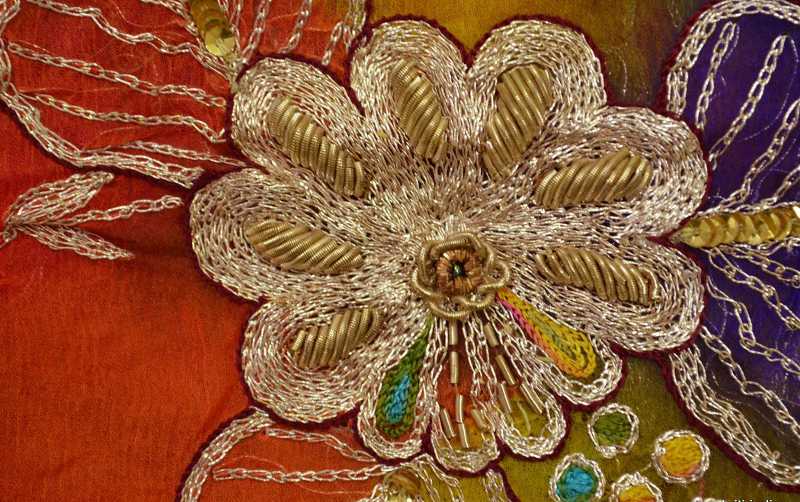===
1590,
8
===

=== |
 |
;xuub jo aa;Nkhe;N khol ke dekhaa shaa;x-e gul se na:zar aayaa
un rango;N phuulo;N me;N milaa kuchh ma;hv-e jalvah-e yaar hai aaj
1) when I opened my eyes and looked well, something like a rose-branch came into view
2) merged into those colors, flowers, something/somewhat, absorbed in the glory/appearance of the beloved, today
kuchh : 'Something, somewhat, anything, aught; some, any; a little, a few; ever so little; whatever; in any manner or degree, at all'. (Platts p.819)
FWP:
SETS == MIDPOINTS
MOTIFS == JALVAH
NAMES
TERMSThis ghazal is the second of a set of two about which SRF makes special claims for an over-all 'musical' effect; see {1589,1} for his discussion. This verse has been included only in order to provide access to the whole ghazal.
Because I found the grammar of the second line so perversely abstract, I emailed SRF about it, who was kind enough to provide (July 2013) his own translation and a brief comment:
'I opened my eyes wide to see and found that she was just like a rose branch;
There’s something mixed among these hues and flowers, which is absorbed in and by her radiant presence today.'Thus it is not someone, but the flowers and their colours which do the act of being ma;hv : that is, absorbing he presence so much so that it is difficult to distinguish one from the other.
This is one of his more obscure verses, but makes perfect sense in the context of his other verses on this theme, like {1354,3} and {1595,1}.
The second line never does make it clear who or what became merged or absorbed. The leading candidates would be the speaker, the rose-branch-like thing , and 'something'. That kuchh is in a 'midpoints' position anyway, since it can be read with either the clause before ('merged somewhat') or the clause after ('somewhat absorbed'). Really the whole verse is so abstract that it's hard to get excited about the permutations here. Perhaps Mir meant its structure to reflect the indescribable state of mystical entrancement to which its words allude.